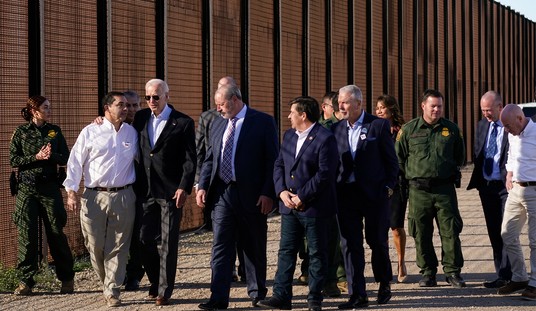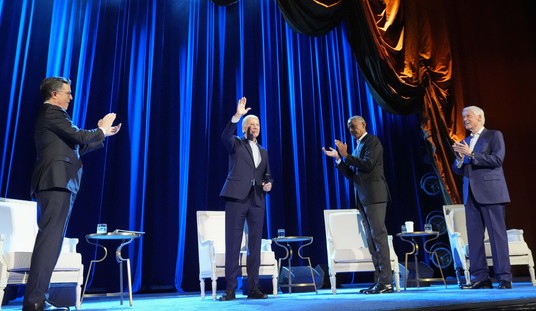It’s not the first time we’ve seen this dynamic, although the situation becomes more acute as John Kerry and Barack Obama press on towards a deal with Iran. The latest poll from Quinnipiac shows a majority of Americans want to embrace a deal, but are pessimistic about its ability to curtail Iran’s pursuit of nuclear weapons:
American voters support 58 – 33 percent the preliminary agreement with Iran to restrict that country’s nuclear program, according to a Quinnipiac University National poll released today.
At the same time, only 35 percent of voters are “very confident” or “somewhat confident” the agreement would prevent Iran from developing nuclear weapons, while 62 percent are “not so confident” or “not confident at all,” the independent Quinnipiac (KWIN-uh-pe-ack) University Poll finds.
If nothing else, Americans are consistent in their inconsistency on this point. A Washington Post poll in March found essentially the same dichotomy: wide majority support for a deal that a wide majority thinks is futile. A week later, both Reuters and Fox got the same result, albeit emphasizing slightly different aspects. Only Democrats are confident that the deal will work (57%, but 48% only somewhat confident). In all other demos, a lack of confidence is the majority position, including among 64% of independents — 40% of whom have “no confidence at all,” slightly above the 39% overall in the poll.
This new Q-poll more or less confirms the conflicted gestalt on Iran. Americans really want a deal that will absolve us of our need to apply military force to the problem. At the same time, most of us don’t think it will do that in the end, but it’s worth the ol’ college try, apparently. Winston Churchill once said he preferred jaw-jaw to war-war, but he also believed that action was needed in order to keep an enemy from fortifying its military position when war was inevitable. And while nearly no one wants to take military action at this point (13% overall, 21% of Republicans), the most obvious option would be to continue the sanctions at their previous level and/or intensify them rather than loosen them, in order to keep Iran from gaining strength in the meantime.
Perhaps understandably in that context, an even stronger majority wants Congress to have a say on the deal. That gets 65/24 approval, and even a 49/40 plurality among Democrats. In no other demo does opposition to Congressional approval of the deal rise to 30%. That’s a measure of both commitment to the constitutional process and the cognitive dissonance of backing a bad deal as better than nothing at all.
The deal doesn’t appear to be impacting Obama’s approval numbers in any specific way. His overall approval is 44/49, a bounce up from 41/52 in March and 39/54 in November. His numbers on foreign policy have barely budged during that time, though; he’s at 39/53, nearly equal to his 35/55 in March and 37/57 in November. On terrorism, Obama gets 43/50, better than his 39/54 in March but about the same as his 44/51 in November. Specifically on Iran, Obama gets 37/52 approval, actually a bit worse than January 2014’s 39/47, the last time Quinnipiac posed the question.
In a sense, everyone can take away something from this poll. Obama’s supporters can say that the American public supports a deal, while his opponents can argue that the electorate doesn’t trust him to make a deal that works and wants Congress as a backstop. That’s ambiguous enough to keep Obama on the same track, which means we’ll end up testing the latter sooner or later.







Join the conversation as a VIP Member